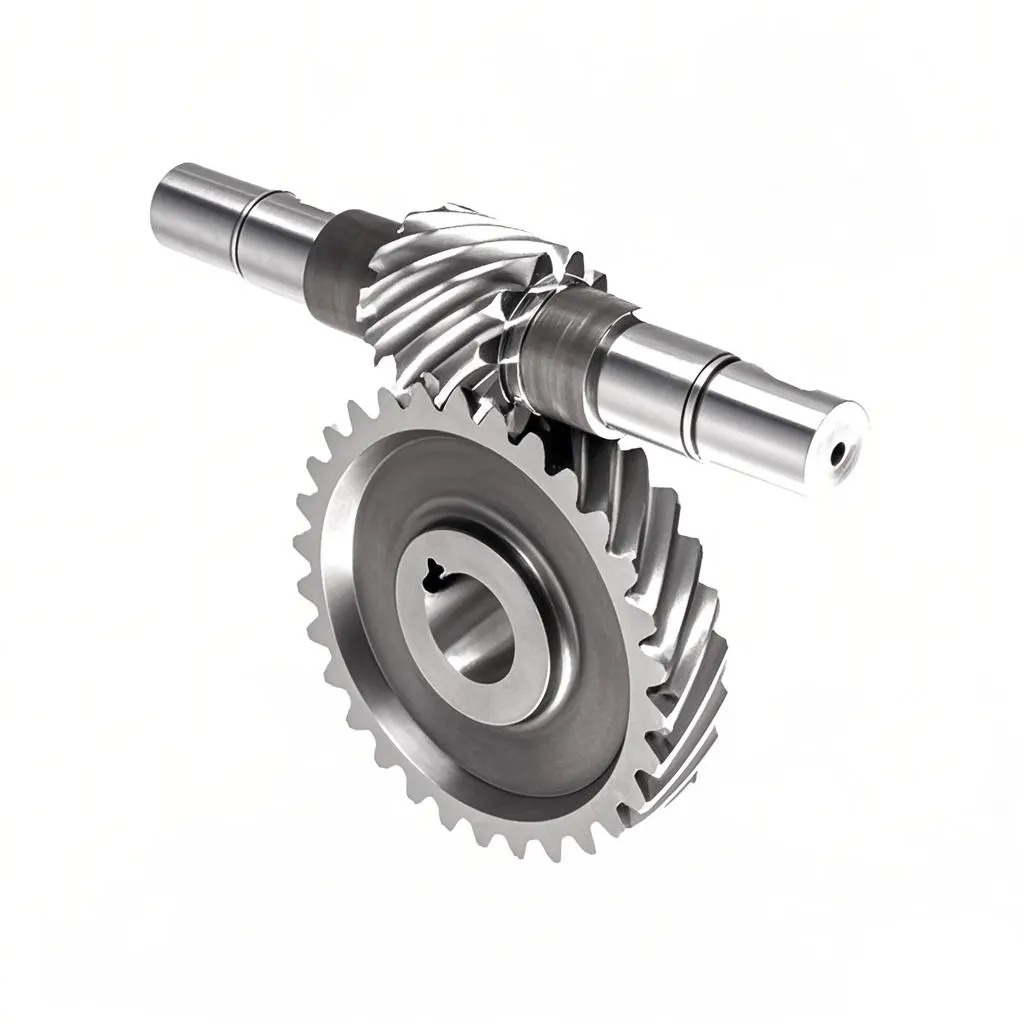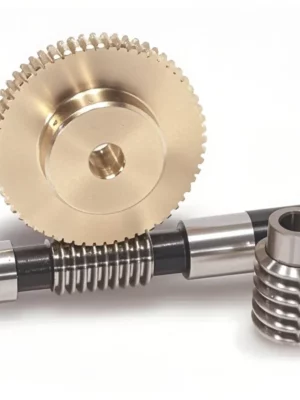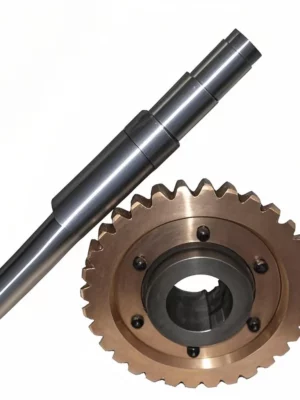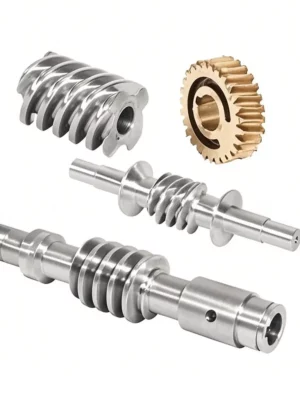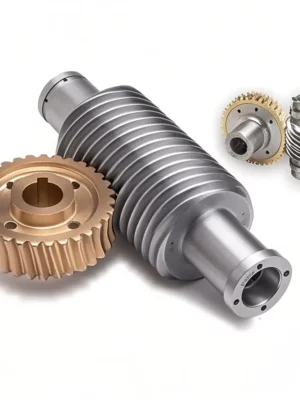The worm shaft plays a vital role in worm gear transmission systems, finding extensive use across industries like machinery, motors, and heavy equipment. Its performance hinges on precision, durability, and wear resistance, making the manufacturing process critical to...
Metric Worm Gears
Metric Worm Gears are essential mechanical components used to transmit motion and torque between non-parallel shafts. Made from high-quality materials like steel and aluminum, these gears provide durability and efficiency. The design of Metric Worm Gears allows for high reduction ratios, making them ideal for applications requiring precise control of speed and movement.
Details of Metric Worm Gears
| Parameter | Value |
|---|---|
| Module | 1-5 |
| Worm Gear Ratio | 5:1 - 100:1 |
| Material | Aluminium, Steel, Brass |
| Size Range | 10mm - 200mm |
| Max Load | 2000 N |
| Temperature Range | -20°C to 100°C |
Features of Metric Worm Gears
- High Efficiency: Metric Worm Gears are designed to provide smooth and efficient power transmission, minimizing energy loss during operation.
- Compact Design: These gears have a compact structure, allowing them to fit into tight spaces without compromising performance.
- Self-Locking Capability: Metric Worm Gears inherently possess a self-locking feature, which prevents back-driving and enhances safety in various applications.
- Versatile Applications: Suitable for a range of industrial applications, Metric Worm Gears can be used in both vertical and horizontal orientations.
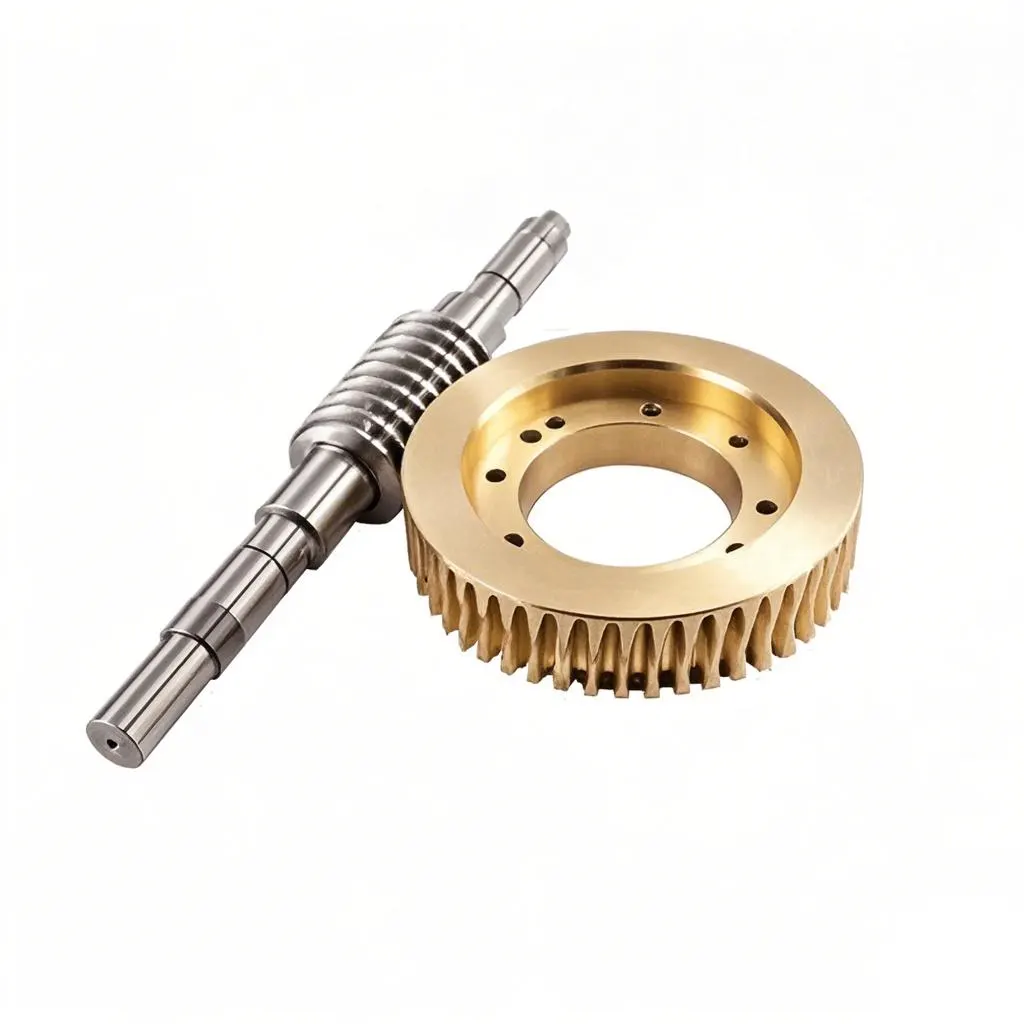
Applications of Metric Worm Gears in Modern Machinery
Metric Worm Gears are crucial components in various mechanical systems, providing efficient power transmission and torque conversion. They are widely used in applications such as conveyors, elevators, and robotics, where precise motion control is essential. The unique design of Metric Worm Gears allows for a high reduction ratio in a compact space, making them ideal for applications requiring significant speed reduction. Their ability to function smoothly under load ensures reliability and longevity in performance, making them a preferred choice for engineers and designers alike.
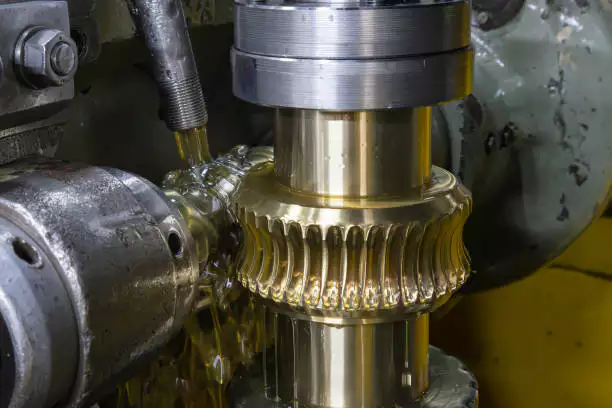
Manufacturing Process of Metric Worm Gears
The production of Metric Worm Gears involves several key steps to ensure precision and reliability. Below are the detailed processes involved:
- Material Selection: The first step in manufacturing Metric Worm Gears is selecting the appropriate materials. High-quality metals like aluminum, bronze, or hardened steel are often used. The choice of material affects the durability, load capacity, and efficiency of the gear. Selecting the right alloy is crucial for achieving the necessary strength and wear resistance, making it a foundational step in the manufacturing process.
- CNC Machining: After material selection, the raw materials undergo CNC machining. This process involves using computer-controlled machines to precisely cut and shape the worm gear according to specific dimensions. CNC machining allows for tight tolerances and complex geometries, ensuring that each Metric Worm Gear meets stringent quality standards. This step is critical in achieving the exact specifications required for proper functioning in mechanical assemblies.
- Heat Treatment: To enhance the mechanical properties of Metric Worm Gears, heat treatment processes such as hardening and tempering are employed. These processes increase the gear's hardness and toughness, making them more resistant to wear and fatigue. Heat treatment is vital for maximizing the lifespan of the gears, especially in high-load applications, and is performed under closely monitored conditions to achieve the desired material characteristics.
- Surface Finishing: The finishing process is crucial for Metric Worm Gears as it improves performance and appearance. Techniques such as grinding, polishing, and coating are used to reduce friction and ensure smooth operation. Proper surface finishing enhances the gear's ability to mesh efficiently with other components and reduces the likelihood of wear, ensuring long-term reliability in various applications.
- Quality Control: The final step in the manufacturing process of Metric Worm Gears involves rigorous quality control measures. Each gear is inspected for dimensional accuracy, surface finish, and overall performance. Testing ensures that the gears meet industry standards and customer specifications, guaranteeing that only high-quality products reach the market. This step is essential for maintaining the reputation of the manufacturer and ensuring customer satisfaction.
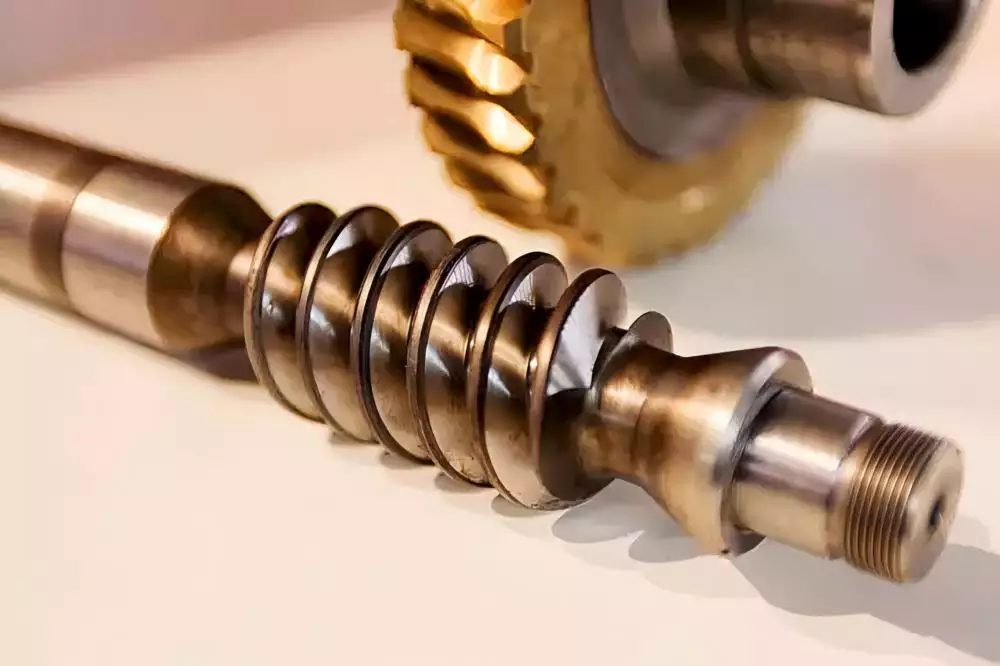
Worm Gear Supplier in Holland
RP Techniek BV is the Dutch sales agent for Ever-power Group and is proud to be one of the top ten worm gear suppliers in the Netherlands. We specialize in high-quality metric worm gears that stand out in the market.
- Our products are crafted with precision, ensuring exceptional performance and durability.
- We prioritize quality, using only the finest materials to manufacture our worm gears.
- Our extensive industry experience enables us to provide tailored solutions that meet diverse customer needs.
- We are committed to outstanding customer service, ensuring a seamless experience from inquiry to delivery.
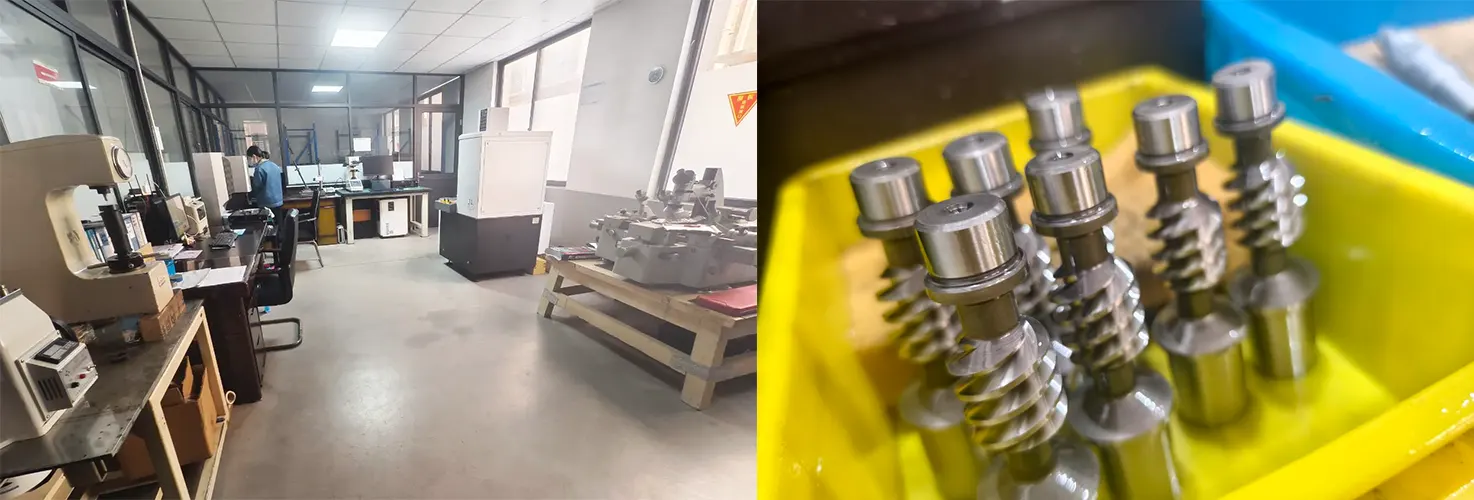
Ek Bilgiler
| Edited | Zqq |
|---|
Bloglar Güncellendi
How Does the Transmission Chain in Holland Affect the Efficiency of Industrial Machinery?
In modern industrial machinery, the transmission chain is a key component that connects the power source and the actuator. Its design and performance directly affect the overall efficiency, reliability and service life of the machinery. Basic Structure and Function of...
German Gearbox Lubrication and Maintenance
As a crucial part of mechanical equipment, the gearbox's lifespan and performance have a direct impact on the system's overall operational efficiency. Maintenance and lubrication are crucial steps in ensuring the gearbox operates steadily over the long run. The Value...

